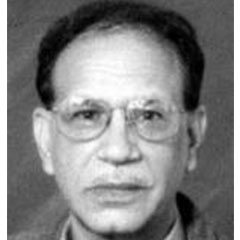
The people of Pakistan and Afghanistan are bound together by faith, common heritage and the shared values of love and peace. There have been misunderstandings in the past between the two because of their being in opposing camps during the Cold War era but continuous contact and dialogue between Pakistan and Afghanistan has removed many a misunderstanding, and now both sides better understand each other’s point of view and compulsions. During his two-day visit to Pakistan in November 2014, Afghan President Ashraf Ghani’s gestures to forget about past acrimonies and to promote robust ties between the two countries appeared to be reflective of his sincere desire to move forward.
On his first day of the visit, President Ashraf Ghani’s trip to the military headquarters in Rawalpindi along with his high-ranking delegation, comprising high-ranking generals and other senior Afghan security officials, was significant. He lauded Pakistan’s sacrifices in the war on terror and laid a floral wreath at the martyrs’ monument. He expressed his government’s interest in “bolstering security and defence ties with Pakistan, including cooperation in training and border management”. He, in fact, struck a positive note at the start of his visit. To end insurgency and bring peace to Afghanistan, President Ashraf Ghani reportedly offered the Taliban space to join the government, an offer that has been turned down by the Taliban. More than three months after assuming office, President Ghani is due to announce his cabinet and intends that cabinet should comprise all parties in Afghanistan.
Indeed, there is need for a multi-ethnic broad based government in Afghanistan, and perhaps it is in this backdrop that the Afghan government intends to appoint Taliban governors to three southern provinces: Nimruz, Kandahar and Helmand. However, a source close to the Taliban leadership said security deals signed by the new government, allowing some international troops to remain in Afghanistan when combat troops left by the end of 2014, were the main stumbling block. The Taliban also want amendments to the constitution to ensure immunity from prosecution before they enter into negotiations on joining the government. Of course, Pakistan will help in the peace process and cooperate with the Afghan government but no one should pin too many hopes on this, as Pakistan does not have influence over the Taliban. If it did the Afghan Talban would have stopped the Tehreek-e-Taliban Pakistan (TTP) from committing heinous acts in Pakistan.
President Ashraf Ghani has assured that Afghanistan will not allow its soil to be used against Pakistan and in return has got an assurance from Pakistan that it will crack down on militants without any distinction. On Sunday, Director General (DG) Inter-Services Intelligence (ISI) Lt-General Rizwan Akhtar met Afghan President Ashraf Ghani and agreed to make joint efforts to deal with the menace of terrorism. His visit to Kabul is linked to his previous trip to Afghanistan along with the army chief after the Peshawar massacre. In his previous visit, the DG ISI shared information in connection with the whereabouts of Mullah Fazlullah and Omar Khurasani. The Afghan government launched an operation in Kunar. As stated above, President Ashraf Ghani visited the general headquarters (GHQ) of the Pakistan army to listen to the top army brass about their concerns.
Military delegations and US State Department officials have been visiting Pakistan and holding meetings with the military leadership in the GHQ but this was the first time in the history of Pakistan that a head of state visited the GHQ to understand the military’s viewpoint and assured it of addressing Pakistan’s concerns. In the meeting on November 14, 2014, Afghan President Ashraf Ghani lauded Pakistan’s efforts to combat terrorism and the sacrifices made by the nation, a press release from the Inter Services Public Relations (ISPR) said. A day after terrorists attacked the Army Public School in Peshawar and martyred 142 persons, including 134 students, Chief of Army Staff (COAS) Raheel Sharif rushed to Afghanistan and produced evidence regarding Mullah Fazlullah’s involvement in the attack. In an unprecedented gesture, Afghan forces, coupled with ISAF forces, responded to the Pakistani request, launching a grand operation against the TTP and its affiliates active on Afghan soil. Afghan Army Chief General Sher Mohammad Karimi and ISAF Chief General John Campbell visited Pakistan and shared with General Raheel the details of their joint operation against the TTP.
In another major breakthrough the same week, the intelligence chiefs of both countries, DG ISI Lt-General Rizwan Akhtar and Chief of National Directorate of Security (NDS) Rahmatullah Nabil held a meeting for intelligence sharing. Meanwhile, the Corps Commander Quetta, Lieutenant General Nasir Khan Janjua, held a meeting with his counterpart, the Corps Commander Jalalabad in Afghanistan in which important information was shared. The security establishments of both Pakistan and Afghanistan have never held such detailed meetings before.
India is using every opportunity to spoil these improved relations between Pakistan and Afghanistan since the swearing-in of Ashraf Ghani as president.
For much of Pakistan’s first three decades of independence, Afghanistan supported the demand for a Pashtun homeland carved out of Pakistan. But the separatist movement died down after the Soviet invasion of Afghanistan in 1979. Pakistan has always wished to see a friendly government in Kabul. It is hoped that with the change of guard in Afghanistan, a new era of friendship and cooperation between Pakistan and Afghanistan will be ushered in.
The writer is a freelance
columnist. He can be reached at mjamil1938@hotmail.com
